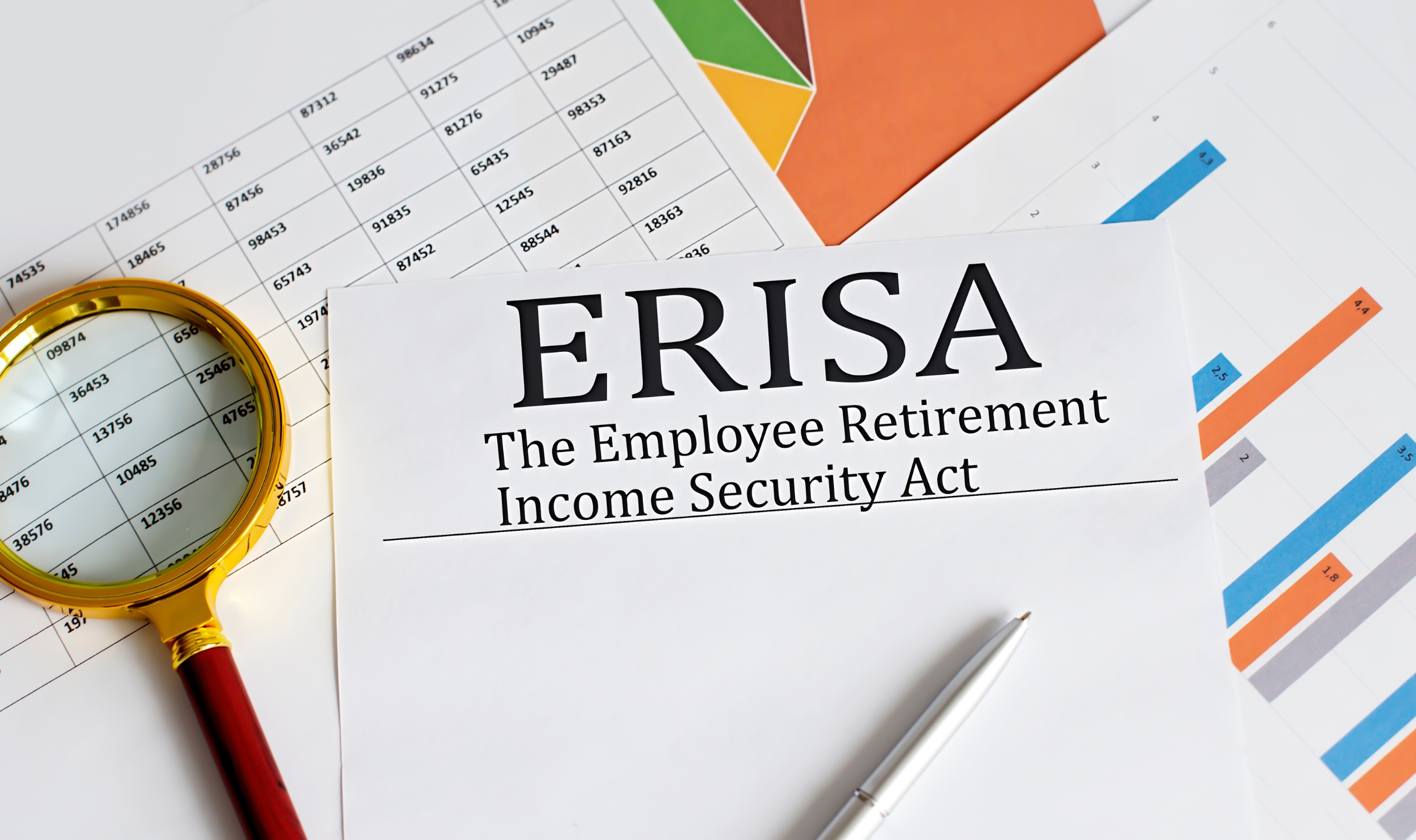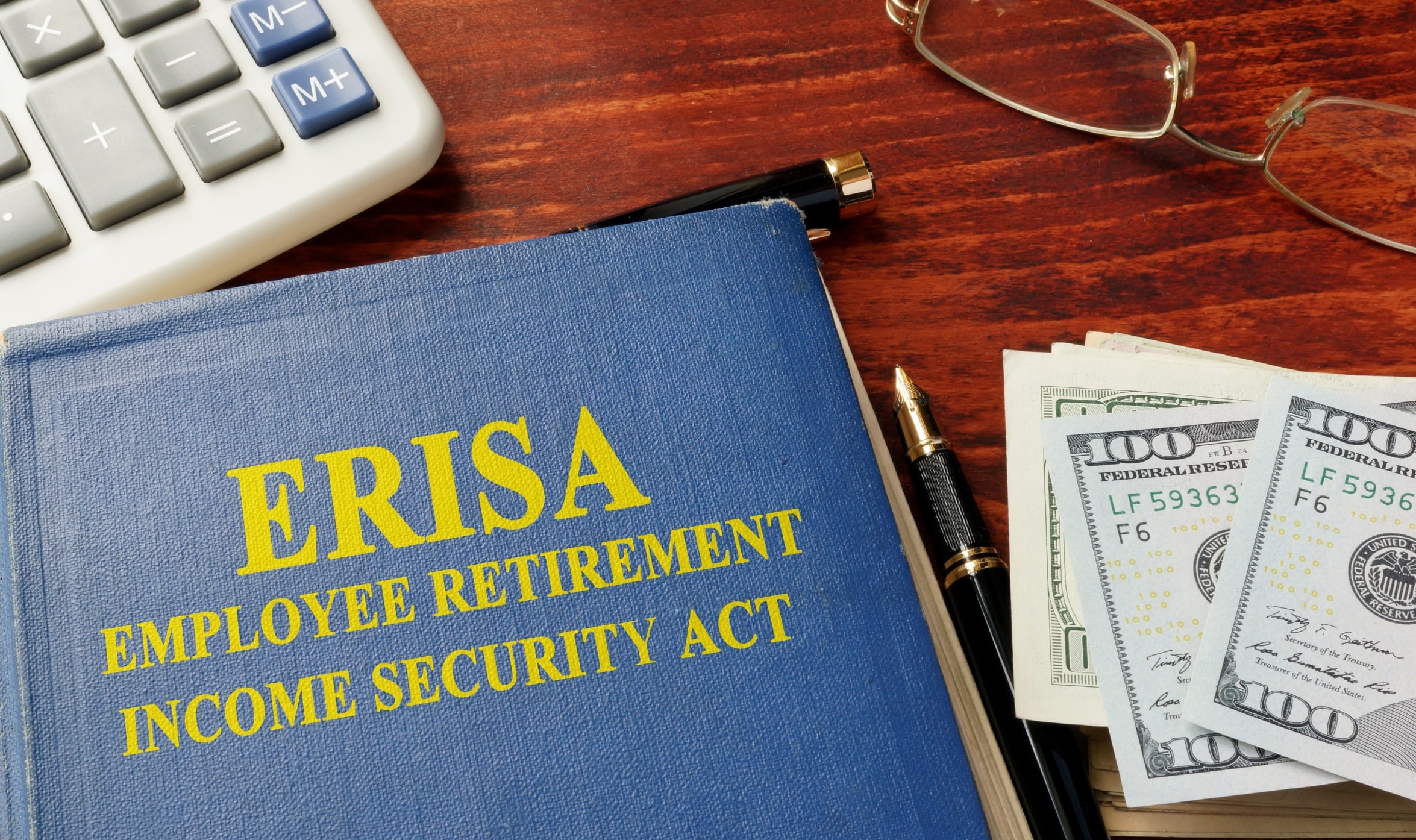Challenging Denied ERISA Claims: Steps to Take for Appeals And Lawsuits
5 Mins Read
Published on: 19 July 2023
Last Updated on: 27 November 2024

When a person’s ERISA claim is denied, it can be a difficult and frustrating experience. It can seem like a huge obstacle, but it is important to understand that legal options are available if you feel your claim has been wrongfully denied. If you have received an unfavorable decision on your ERISA claim, there are two main avenues of recourse – appealing the decision or filing a lawsuit. Knowing the steps to take in each situation can help with your ERISA claim and provide clarity as you seek justice for yourself or a loved one.
What is ERISA?

ERISA, or Employee Retirement Income Security Act, is a federal law passed by the United States Of America. This law protects the interests of employees, along with their benefits.
This law is quite robust and protects more than 684,000 retirement plans, 2.4 million additional benefits, and medical plans. Therefore, it shows the robustness of the program.
Anyone who works in a private company is automatically covered under ERISA. Not only that, but ERISA is instrumental in so many different ways.
Then again, claiming ERISA is certainly not the easiest thing you will do. Therefore, it is important to understand the whole claiming process piece by piece.
The ERISA Claim Process

Handling the ERISA claim process is a very nuanced and complex process to master. As a result, knowing how to file an ERISA claim is a skill you must develop if you plan on taking on the whole process alone.
Thankfully, we did all the legwork so that you can rest easily. Here is a step-by-step breakdown of the whole ERISA claim process so that you can approach the subject with clarity and context.
Step #1
You must start the ERISA claim with a detailed plan review. Make sure you understand all the terms and conditions before going ahead. The best way to proceed is to go through the document with the help of a financial advisor.
Step #2
Once you have all the necessary details, you must gather evidence. For example, if you are claiming a disability benefit, you need to present the necessary documentation. Keep all the documentation handy to make things easier for yourself.
Step #3
The third step of the process is to file the claim. Remember, this is a very important part of the process. As a result, you need to be very careful with it. Read every document multiple time to understand what is expected of you. If you find yourself overburdened, you can get the help of an ERISA claim attorney.
Step #4
After you are done applying for ERISA benefits, you need to start a long wait. In standard cases, you might have to wait for 45 days till you hear anything. However, in special cases, this time period might vary.
Step #5
In case your claim is denied, you are free to repeal. If you disagree with the decision, you can reclaim the process for the next 180 days. This means within 180 days; you can claim or repel for ERISA benefits.
Appealing Your Denied Claim
When challenging a denied ERISA claim, the first step is to appeal the decision. The appeals process begins by submitting written notice to the plan administrator within 180 days of receiving their denial letter. This should include all relevant information about why you believe the initial decision was incorrect, such as medical evidence or other supporting documentation not previously submitted with your initial application.
The plan administrator will then review your case and respond with either an approval or another denial of benefits – at which point further action may be necessary depending on the outcome of this appeal.
Filing An ERISA Lawsuit

If appealing the original denial does not result in an approved benefit award, then filing an ERISA lawsuit may be necessary to challenge the insurance company’s decision more aggressively.
In this situation, it is important to contact an experienced attorney specializing in ERISA cases as soon as possible so they can build a strong case on behalf of their client and help them navigate through any potential legal issues associated with filing this type of case. After engaging legal counsel, individuals must file their complaint in federal court within three years of receiving their original denial notification from the insurance company – otherwise, they may be barred from pursuing any type of legal action against them for this particular issue down the line.
Factors To Consider When Challenging A Denied Claim
When filing either an appeal or lawsuit related to a denied ERISA claim, several factors must be taken into consideration before proceeding with these types of actions:
Before taking any legal action against an insurer regarding their denial decisions, it is essential that policyholders read through their policy documents thoroughly so they know exactly what coverage they are entitled to (and what might potentially trigger exclusions). This will also help them better prepare for questions arising during appeal/lawsuit proceedings related directly to back-to-the-policy language.
Submitting additional medical records or other supporting evidence (such as letters from treating physicians) along with appeals and lawsuits can help strengthen one’s case. This is especially true when dealing with complex conditions such as chronic illnesses/injuries where diagnosis/treatment protocols may not always fit neatly into traditional “black & white” categories outlined by insurers within policies.
Working closely with qualified attorneys who specialize in handling denied claims cases under various state/federal laws can make all the difference when navigating complicated appeals processes and litigation procedures.
Conclusion
Challenging denied ERISA claims can be a difficult and complex process. However, there are steps that claimants can take to appeal and potentially file a lawsuit to obtain the benefits they are entitled to.
These steps include:
- Reviewing the denial letter and understanding the reason for the denial;
- Filing an administrative appeal with the insurance company or plan administrator;
- Gathering and submitting additional medical and vocational evidence to support the claim;
- Consulting with an experienced ERISA attorney who can help navigate the appeals process and potentially file a lawsuit if necessary;
- Being aware of the contractual statute of limitations for filing a claim.
It is important for claimants to understand their rights and options under ERISA and to seek legal guidance if they encounter challenges in obtaining their benefits. With the right approach and support, it is possible to successfully challenge a denied ERISA claim and obtain the benefits that are rightfully deserved.
Read Also:



















Comments Are Closed For This Article